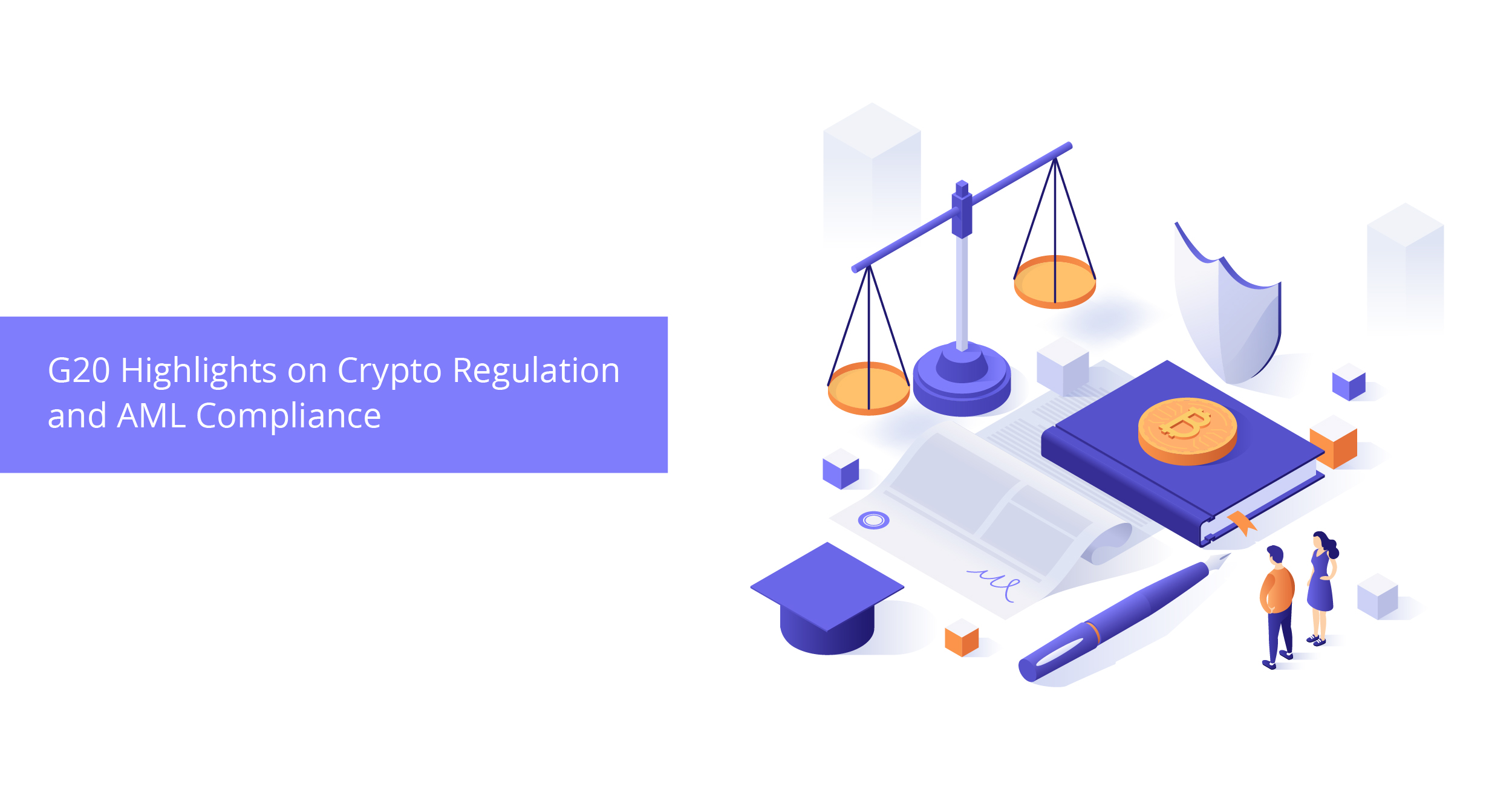
G20 Highlights on Crypto Regulation and AML Compliance
At the 2019 G20 Summit held in Japan this year, finance ministers and central bank governors of 19 countries and the EU discussed the global impact of crypto assets. Leaders agreed that tech innovations involving cryptocurrencies could be beneficial for the financial ecosystem. However, there would have to be strict security standards to ensure AML compliance and counter financial terrorism. Some key highlights of the discussion are as follows:
Crypto Assets Aren’t a Threat (Not Yet, Anyway)
A possible ban on cryptocurrency was on the cards at the G20 summit. However, leaders decided that, at present, they do not pose a major threat to global financial stability. In fact, their benefits, such as greater diversity in the financial system and more competition, were highlighted. The G20 said that as long as States have sovereignty over most part of their funds, cryptocurrencies wouldn’t be a danger. However, all developments in the crypto industry will now be monitored very closely for potential risks. Any threats to fiat currency could call their legitimacy into question once again.
G20 Now Officially Supports FATF’s Crypto Guidelines
At the summit, G20 leaders officially extended their support to the cryptocurrency guidelines that the Financial Action Task Force (FATF) had proposed. FATF, the global watchdog for AML compliance, asked exchanges to adopt a ‘risk-based approach’ to tackle financial crime. Among other things, the guidelines recommended that crypto platforms should collect and hold crucial information about transactions like customer names, wallet addresses, or national IDs whenever necessary. Such data can assist with AML services, ensuring that suspicious activities can be traced.
Certain industry leaders opposed the guidelines, citing high cost and inconvenience of global collaboration. Yet, given that the world’s most influential countries have shown their support, these guidelines could become the law in many countries in the near future.
Three International Bodies Will Likely Be Regulators
Discussions indicate that FATF may be the most important regulator when it comes to crypto assets. G20 leaders expressed their commitment to work with the FATF standards to combat financing of terrorism. The International Organization of Securities Commissions (IOSCO) will watch over the exchanges and digital platforms to ensure customer protection. To monitor the overall risks that crypto assets might have on global financial stability, the Financial Stability Board (FSB) will step in.
Implications
The mere fact that cryptocurrencies are being discussed in a global forum is proof enough that they’re here to stay. However, it is not yet clear whether these proposed measures will truly benefit financial transparency, or hurt legitimate crypto users. The fallout of such rigid measures may also result in the increase of anonymous cryptocurrencies that are difficult to trace.
These decisions, though not groundbreaking, provide more direction for crypto assets, and help integrate them into the financial system. They call for an overhauling, of sorts, of the cryptocurrency system, whose primary motive was anonymity. While the guidelines are not mandatory, adherence by individual countries will determine their place among peers, and consequently, the global financial network.


